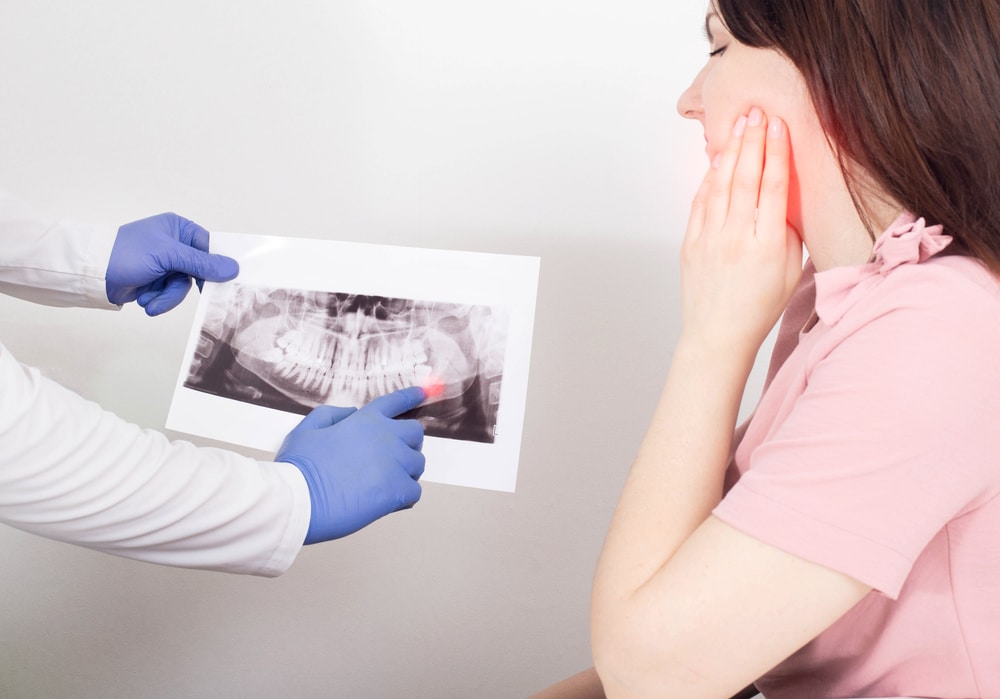Wisdom teeth, also known as third molars, are the last teeth to erupt in your mouth. This usually occurs between the ages of 17 and 25, a phase of life that has been referred to as the “age of wisdom,” hence the name. Let’s delve into the development of wisdom teeth to better understand their function and the reasons for extraction.
The Evolutionary Role of Wisdom Teeth
Human ancestors had a much different diet than we do today. Their food often included raw meat, roots, leaves, and hard fruits, which required a lot of chewing power. The wider jaw of our predecessors could accommodate 32 teeth, including the third molars, to aid in the grinding down of these tough foods.
As humans evolved, our dietary habits changed. The advent of cooking and tools to process food meant less work for our jaws, and over time, our jaws have become smaller. Today, most of us have room for only 28 teeth. As a result, when those third molars try to fit in, problems often arise.
Wisdom Teeth Complications and Extraction Reasons
When there’s not enough room in the mouth for wisdom teeth to grow properly, they can become ‘impacted.’ This means that the teeth are unable to emerge fully from the gums, which can cause a host of complications:
1. Pain and Infection: Impacted wisdom teeth can lead to pain, swelling, and infection in the gum tissues surrounding the teeth.
2. Damage to Adjacent Teeth: The pressure from impacted wisdom teeth can damage neighboring teeth, leading to tooth decay or making these teeth more susceptible to gum disease.
3. Cysts or Tumors: Sometimes, cysts or tumors can form around impacted wisdom teeth, leading to potential jaw damage and requiring further treatments.
Due to these potential complications, dentists often recommend extracting wisdom teeth. This is particularly true in cases where the teeth are impacted, but also in situations where the teeth have partially erupted or grown in at an incorrect angle.
The Extraction Procedure
Wisdom tooth extraction is a common procedure typically performed under local anesthesia, sedation, or general anesthesia, depending on the complexity of the case and patient comfort. During the procedure, the dentist or oral surgeon makes an incision in the gum tissue, removes any bone blocking access to the tooth, extracts the tooth, and then cleans the area and stitches the wound to promote healing. Post-procedure, patients may experience some discomfort, swelling, and bruising, but these symptoms typically subside within a few days.
Wisdom Teeth: To Extract or Not to Extract?
While many people need to have their wisdom teeth removed, it’s not a hard and fast rule for everyone. In some cases, if the wisdom teeth are healthy, fully erupted, properly aligned, and can be cleaned as part of daily hygiene practices, they may not need to be removed.
Regular dental visits are crucial in this regard. Dentists can monitor the condition and position of your wisdom teeth using examinations and X-rays and can recommend extraction if it looks like they may cause problems.
Conclusion
Understanding wisdom teeth and their role in our dental health is crucial to maintaining our oral well-being. While the evolutionary need for these teeth has diminished, their potential to impact our dental health significantly has not. Regular dental check-ups are key in monitoring these late bloomers and ensuring they’re not causing more harm than good. Remember, when it comes to wisdom teeth, prevention and early intervention can save you a lot of discomfort and potential health issues down the line.



